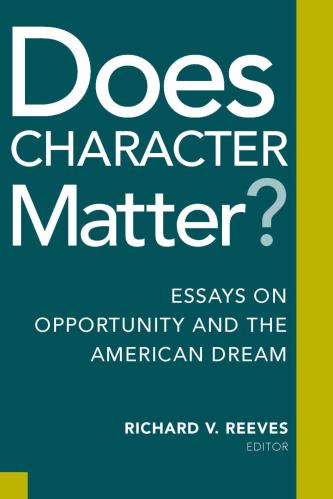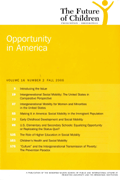Terminologically speaking, scholarship on “non-cognitive factors” is a mess. This is a field where words count, too. Are we examining behaviors, skills, strengths or traits? Are we promoting “character,” “socio-emotional learning,” or “soft skills?” Two fallacies in particular are impeding progress: the “jingle” and the “jangle”.
The Jingle Fallacy
The “jingle fallacy” refers to the use of a single term to describe a multiplicity of quite different things. In this case, the phrase “non-cognitive skills” lumps together a vast range of skills, traits, strengths, or attributes: essentially, as the term implies, anything that is not cognitively based. This could include social manners or personal confidence; but it may also refer to the capacity to defer gratification (sometimes referred to as prudence or “grit”), focus on a task, weather difficult times (labeled, sometimes, “resilience”), or empathize with the troubles of another person.
When a term is being used to cover so much ground, it gets in the way of understanding. Researchers working on wildly different dimensions can falsely believe they are working in the same space, when in truth they are no closer than astrophysicists to astronomers. It is time to retire the phrase “non-cognitive” from active duty.
The Jangle Fallacy
But there’s another potential problem, one that also bedeviled early research on cognitive factors: the “jangle fallacy,” which occurs when people use different terms to describe the same thing. This can get in the way of cross-disciplinary collaboration and the adoption of common measurements. The problem is often compounded by the different vocabularies of various disciplines. A particular attribute may be labeled a “skill” by an economist, a “personality trait” by a psychologist, a certain kind of “learning” by an educationalist, or a “character” dimensions by a moral philosopher. Each may have the same concept in mind, but miss each other’s work or meaning because of the confusion of terms.
Even Heckman Struggles
Anybody finding it difficult to make their way through this thicket of words and meanings can take some comfort from the fact that even the best in the field are struggling. Listen to Nobel prize-winner (and our adviser and friend) James Heckman being challenged in this NPR interview for “This American Life” for the different terms he has used to describe these often ephemeral factors. Heckman is the father of the field, certainly within economics, and has given a great deal of thought to the language and labeling issue. He now refers to “character skills.”
Character Traits, Character Skills and Character Strengths
A “trait” typically refers to a largely fixed, often genetically-influenced, attribute. Introverts don’t become extroverts, even if they learn to demonstrate some extrovert behaviors. But skills – including the capacity to focus on a task at hand, or defer gratification – are changeable, may vary through a lifetime, and can be both taught and learned.
Heckman’s use of the term skills is therefore helpful in terms of narrowing the focus of his research and suggesting malleability. (Paul Tough, another advisor, takes a similar line). But something is lost here, too. Skill doesn’t capture some important factors. Is curiosity, to give one example, a skill to be learned, a fixed personality trait, or somewhere between the two? In our own work (including in our report “The Character Factor”) we tend to use the term “character strength” as a compromise between skills and traits. Strength calls to mind athletic abilities – a person may have a predisposition towards a certain level of physical strength, but with enough work at the gym anyone can build up the muscles to do 100 pushups. Similarly, a person’s innate ability to focus on a task may vary, but focus can be taught as well.
Of course the term character is not without its own problems. As Heckman put it in the ‘This American Life’ interview, “The trouble is ‘character’ sounds very moralistic. It sounds like we’re running a Sunday School.”
But his solution is the right one: don’t back away from using the term character, which is the clearest overall label: just be specific what you mean when you talk about it. In particular, we need to be on our guard against both the “jingle” (using the same term for different concepts) and the “jangle” (using different terms for the same concept) in this debate.








Commentary
Jingle-Jangle Fallacies for Non-Cognitive Factors
December 19, 2014